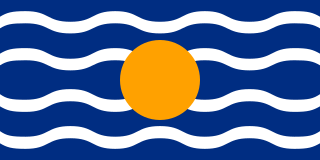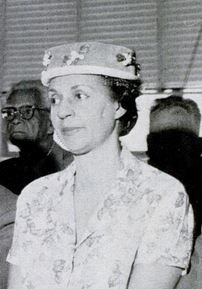Related Research Articles

Sir Derek Alton Walcott was a Saint Lucian poet and playwright. He received the 1992 Nobel Prize in Literature. His works include the Homeric epic poem Omeros (1990), which many critics view "as Walcott's major achievement." In addition to winning the Nobel Prize, Walcott received many literary awards over the course of his career, including an Obie Award in 1971 for his play Dream on Monkey Mountain, a MacArthur Foundation "genius" award, a Royal Society of Literature Award, the Queen's Medal for Poetry, the inaugural OCM Bocas Prize for Caribbean Literature, the 2010 T. S. Eliot Prize for his book of poetry White Egrets and the Griffin Trust For Excellence in Poetry Lifetime Recognition Award in 2015.

The West Indies Federation, also known as the West Indies, the Federation of the West Indies or the West Indian Federation, was a short-lived political union that existed from 3 January 1958 to 31 May 1962. Various islands in the Caribbean that were part of the British Empire, including Trinidad and Tobago, Barbados, Jamaica, and those on the Leeward and Windward Islands, came together to form the Federation, with its capital in Port of Spain, Trinidad and Tobago. The expressed intention of the Federation was to create a political unit that would become independent from Britain as a single state—possibly similar to the Canadian Confederation, Australian Commonwealth, or Central African Federation. Before that could happen, the Federation collapsed due to internal political conflicts over how it would be governed or function viably. The formation of a West Indian Federation was encouraged by the United Kingdom, but also requested by West Indian nationalists.

The British West Indies (BWI) were colonised British territories in the West Indies: Anguilla, the Cayman Islands, Turks and Caicos Islands, Montserrat, the British Virgin Islands, Antigua and Barbuda, The Bahamas, Barbados, Dominica, Grenada, Jamaica, Saint Kitts and Nevis, Saint Lucia, Saint Vincent and the Grenadines, British Guiana and Trinidad and Tobago. Other territories include Bermuda, and the former British Honduras. The colonies were also at the centre of the transatlantic slave trade, around 2.3 million slaves were brought to the British Caribbean. Before the decolonisation period in the later 1950s and 1960s the term was used to include all British colonies in the region as part of the British Empire. Following the independence of most of the territories from the United Kingdom, the term Commonwealth Caribbean is now used.
The Honourable Edward Kamau Brathwaite, CHB, was a Barbadian poet and academic, widely considered one of the major voices in the Caribbean literary canon. Formerly a professor of Comparative Literature at New York University, Brathwaite was the 2006 International Winner of the Griffin Poetry Prize, for his volume of poetry Born to Slow Horses.

Omeros is an epic poem by Saint Lucian writer Derek Walcott, first published in 1990. The work is divided into seven "books" containing a total of sixty-four chapters. Many critics view Omeros as Walcott's finest work.
Dennis Scott was a Jamaican poet, playwright, actor and dancer. His well-known poem "Marrysong" is used in the IGCSE syllabus. He was also a theatre director and drama teacher.
Earl Wilbert Lovelace is a Trinidadian novelist, journalist, playwright, and short story writer. He is particularly recognized for his descriptive, dramatic fiction on Trinidadian culture: "Using Trinidadian dialect patterns and standard English, he probes the paradoxes often inherent in social change as well as the clash between rural and urban cultures." As Bernardine Evaristo notes, "Lovelace is unusual among celebrated Caribbean writers in that he has always lived in Trinidad. Most writers leave to find support for their literary endeavours elsewhere and this, arguably, shapes the literature, especially after long periods of exile. But Lovelace's fiction is deeply embedded in Trinidadian society and is written from the perspective of one whose ties to his homeland have never been broken."
Caribbean literature is the literature of the various territories of the Caribbean region. Literature in English from the former British West Indies may be referred to as Anglo-Caribbean or, in historical contexts, as West Indian literature. Most of these territories have become independent nations since the 1960s, though some retain colonial ties to the United Kingdom. They share, apart from the English language, a number of political, cultural, and social ties which make it useful to consider their literary output in a single category. The more wide-ranging term "Caribbean literature" generally refers to the literature of all Caribbean territories regardless of language—whether written in English, Spanish, French, Hindustani, or Dutch, or one of numerous creoles.
Michael Arthur Gilkes was a Caribbean literary critic, dramatist, poet, filmmaker and university lecturer. He was involved in theatre for more than 40 years, as a director, actor and playwright, winning the Guyana Prize for Drama in 1992 and 2006, as well as the Guyana Prize for Best Book of Poetry in 2002. He was also respected for his insight into and writings on the work of Wilson Harris.
Slade Hopkinson was a Guyana-born poet, playwright, actor and teacher.
Errol Gaston Hill was a Trinidadian-born playwright, actor and theatre historian, "one of the leading pioneers in the West Indies theatre". Beginning as early as the 1940s, he was the leading voice for the development of a national theatre in the West Indies. He was the first tenured faculty member of African descent at Dartmouth College in the United States, joining the drama department there in 1968.

Caribbean poetry is vast and rapidly evolving field of poetry written by people from the Caribbean region and the diaspora.
Raymond R. Ramcharitar is a Trinidadian poet, playwright, fiction writer, historian and media and cultural critic.

Caribbean Voices was a radio programme broadcast by the BBC World Service from Bush House in London, England, between 1943 and 1958. It is considered "the programme in which West Indian literary talents first found their voice, in the early 1950s." Caribbean Voices nurtured many writers who went on to wider acclaim, including Samuel Selvon, Edward Kamau Brathwaite, V. S. Naipaul, Derek Walcott, John Figueroa, Andrew Salkey, Michael Anthony, Edgar Mittelholzer, Sylvia Wynter, and others.
Roderick Aldon Walcott, OBE, was a St Lucian playwright, screenwriter, painter, theatre director, costume and set designer, lyricist and literary editor. As a dramatist he "has been recognised as one of the most committed figures in the effort to develop a distinctive Caribbean theatre in the region". He was the twin brother of Nobel laureate Derek Walcott.
Eric Merton Roach was a Tobagonian poet and playwright. He published some early writing under the pseudonym Merton Maloney.
Marina Ama Omowale Maxwell, also known as Marina Maxwell and Marina Maxwell Omowale, is a Trinidadian playwright, performer, poet and novelist. She was associated with the Caribbean Artists Movement in London in the late 1960s, working with Edward Kamau Brathwaite, while back in the Caribbean she was responsible for developing the experimental Yard Theatre, which was "an attempt to place West Indian theatre in the life of the people [...] to find it in the yards where people live and are." The concept "yard theatre" was considered revolutionary by Brathwaite because it not only rejected the traditions of colonial Euro-American theatre but provided a viable creative local alternative.

Marguerite WykeOBE was an American-born Trinidadian teacher, poet, artist and politician. After growing up in Jersey City, New Jersey, and working as a teacher, she married and moved to Canada for a decade and then relocated to Trinidad. Writing for various journals and newspapers, and cultivating the artistic community in Trinidad, she became active in local politics. Renouncing her U. S. citizenship, Wyke became a Trinidadian citizen in 1953 and became active in the island's governance. With the establishment of the West Indies Federation she was appointed as one of two senators from Trinidad and Tobago and one of only two women senators to serve in the Federal Parliament of the West Indies Federation. When the Federation dissolved, Wyke returned to her artistic endeavors, publishing poetry and participating in various art media.
Elizabeth Walcott-Hackshaw is a Trinidadian writer and academic, who is Professor of French Literature and Creative Writing at the University of the West Indies. Her writing encompasses both scholarly and creative work, and she has also co-edited several books. Walcott-Hackshaw is the daughter of Nobel Prize laureate Derek Walcott.
John Robert Lee is a Saint Lucian, Christian poet, writer, journalist and librarian. He has been awarded the Saint Lucia Medal of Merit (Gold) for his contribution to the development of Saint Lucian arts and culture. In 2017, his Collected Poems (1975–2015) were published by Peepal Tree Press.
References
- ↑ Robert D. Hamner, Epic of the Dispossessed: Derek Walcott's Omeros, University of Missouri Press, 1997, p. 20.
- ↑ Derek Walcott biography at Poetry Foundation.
- ↑ Martin Banham (ed.), "Trinidad and Tobago", in The Cambridge Guide to Theatre, Cambridge University Press, 2000 reprint edition, p. 1125.
- ↑ Caribbean Quarterly, vol. 7, Nos. 1–2, March-June 1961, 104 pp. See John Robert Lee (ed.), Bibliography of St. Lucian Creative Writing: Poetry, Prose, Drama by St. Lucia Writers, 1948–2013, Castries, Saint Lucia: Cultural Development Foundation, 2013, p. 66.